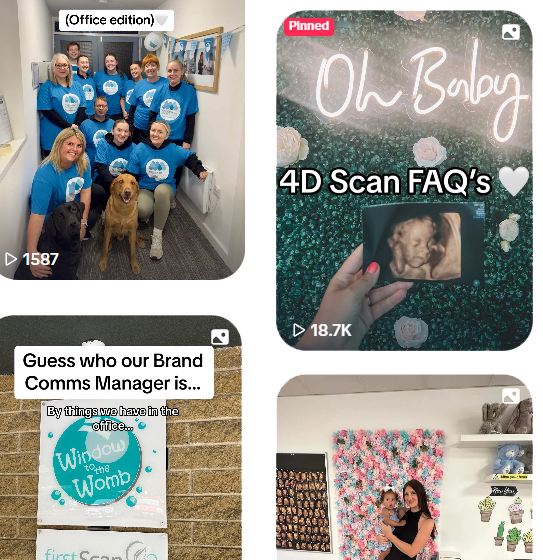So, you’re about to become a parent – congratulations! The excitement is building, and soon you’ll be bringing home a tiny human who will change your life in ways you never expected. But what happens when the baby finally arrives, and you’re at home with your newborn? While there are lots of well-meaning books and blogs with tips and tricks, the reality of newborn care often looks a little different. Here are the basics to keep in mind – realistic, practical, and without any pressure to be perfect.
1. Prepare for the Unexpected
No matter how much you plan, the arrival of your baby will bring surprises. You might have a vision of how the first few days will go, but babies don’t always stick to plans. One day they might sleep for hours, and the next, they’ll want to be held constantly. Some babies are born with colic, some sleep through the night earlier than expected, and others take their sweet time. This unpredictability can be tough, but it’s also normal. If things don’t go as you imagined, that’s OK. Go with the flow as best as you can, and give yourself grace when things get messy.
2. Sleep Will Be All Over the Place
The whole “sleep when the baby sleeps” advice can be easier said than done. While newborns sleep a lot, it’s usually in short bursts, and often, they sleep when you need to be up and about. They don’t know the difference between day and night yet, and they’ll wake up frequently to feed or be comforted. It’s a huge adjustment, and while you might be exhausted, know that this phase won’t last forever. If you can, take naps during the day when possible, and don’t feel bad about needing help – everyone needs a break.
3. Feeding: It’s Not Always Easy
Feeding is one of the biggest concerns for new parents, and it’s an area that doesn’t have a one-size-fits-all solution. Whether you choose to breastfeed, bottle-feed, or a combination of both, it’s important to remember that there’s no “right” way to feed your baby. Some mothers may find breastfeeding difficult or painful at first, while others might struggle with bottle-feeding or formula feeding. It can take time to figure out what works best for you and your baby, and it’s completely okay if things aren’t perfect right away.
If breastfeeding is your choice, get the support you need, whether that’s through lactation consultants, your doctor, or online communities. If you’re bottle-feeding, there’s no shame in that either – it’s just another way to meet your baby’s needs. Feed your baby when they’re hungry, and try not to get caught up in comparing yourself to others.
4. Nappy Changes – Expect Lots of Them
Babies need a lot of nappy changes, especially in the first few months. Expect to change their nappy 8-12 times a day! While that may seem overwhelming, it’s a part of the process. Keep the essentials nearby – nappies, wipes, and a gentle nappy cream to help prevent irritation – and remember that it’s completely normal for babies to get a bit of nappy rash now and then. If your baby’s nappy is wet or dirty, change it as soon as possible to keep them comfortable.
And while there’s plenty of advice out there on how to do it all “right,” remember: it’s okay if you’re not always perfect. Sometimes, you’ll be tired, and you’ll miss a little spot or have to change a nappy at an inconvenient time. What matters most is that your baby is clean, dry, and comfortable.
5. Crying is Part of the Deal
It’s hard, but it’s true: your newborn will cry. A lot. Crying is how they communicate their needs. They might be hungry, tired, or need a cuddle – or they may just be overwhelmed by the world around them. While it can be incredibly tough to hear, it’s normal. Sometimes, even after you’ve checked all the usual things (feeding, nappy change, burping), babies cry. And that’s okay.
It’s also important to remember that it’s okay to step away if you need a break. If you’ve checked everything and your baby is still upset, it’s alright to place them safely in their cot, take a moment for yourself, and regain your composure. Parenting is hard, and you’re doing your best.
6. Take Care of Yourself Too
When you’re a new parent, it’s easy to forget about your own needs. After all, the baby needs you, and it can feel like there’s always something to do. But your well-being is just as important as your baby’s. If you can, take small moments for yourself, whether it’s a hot cup of tea, a short walk, or a phone call with a friend. Don’t be afraid to ask for help from family or friends. Accepting help doesn’t make you any less of a parent; it just means you’re giving yourself the space to recharge.
Also, be kind to yourself when it comes to your mental health. Parenting can bring up all kinds of emotions, from joy and wonder to stress and frustration. Postpartum depression is real, and if you’re feeling down or overwhelmed, don’t hesitate to reach out for support. You deserve it.
7. You Don’t Have to Be Perfect
There is no “perfect” way to be a parent, and it’s important to remember that every family has their own unique way of doing things. Whether you’re co-sleeping, using formula, or have a strict routine, it’s all okay as long as your baby is loved and cared for. There will be moments of joy and moments of struggle, but the most important thing is that you are doing your best. Babies are incredibly resilient, and as long as you provide them with love, attention, and care, you’re already succeeding.
8. Trust Your Instincts
Lastly, trust your instincts. There are plenty of books and blogs with advice, but no one knows your baby better than you. You will learn their cues, preferences, and rhythms over time. When in doubt, trust your gut. Parenting is about finding your own rhythm and figuring out what works for your family. If you make mistakes (and you will – everyone does!), that’s okay. There’s no such thing as a perfect parent, just a parent who tries their best.
Final Thoughts
The early days with a newborn can be challenging, but they are also filled with moments of pure joy. The sleepless nights, the endless nappy changes, and the crying are all part of the process. And while it might not always feel like it, you’re doing an incredible job. Don’t pressure yourself to be perfect. You’re learning, growing, and adjusting, just like your baby. And before you know it, this challenging phase will pass, leaving you with unforgettable memories of your baby’s first milestones.
Take it one day at a time, and remember: you’ve got this.













 Packages & Prices
Packages & Prices  Important Info & Policies
Important Info & Policies  Your Scan
Your Scan